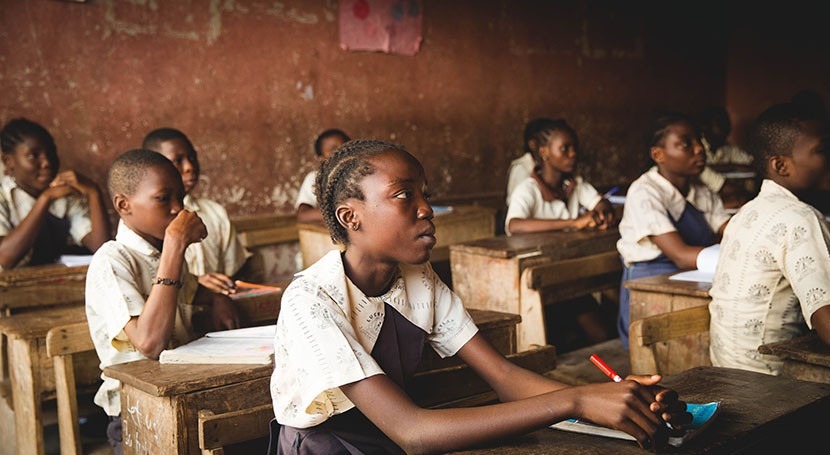This week’s World Water Forum, taking place in Dakar, Senegal, is a timely reminder of how the world is slipping behind its commitment to achieve universal access to safe sanitation by 2030.
Access to basic sanitation and hygiene services is a primary concern globally, with 3.6 billion people lacking safely managed sanitation and 2.3 billion without basic hygiene in 2020.
We at AMCOW, Speak Up Africa, UNICEF and Water & Sanitation for the Urban Poor (WSUP) believe that there is hope to turn this situation around: in the form of the African Sanitation Policy Guidelines (ASPG), an initiative launched last year to help improve national and subnational sanitation and hygiene policy across the continent.
The guidelines provide the continent with essential standards for sanitation and hygiene policies improvements, giving national governments a structure that will help them turn the page on the current state of inadequate sanitation and hygiene services for its populations.
But can, and will, the policy guidelines be implemented? We have looked closely into the implications of the six areas of the guidelines and are convinced that it will help countries to prioritise the key interventions that are needed.
The reason we know that is that across the continent, guidelines – which outline six key areas of intervention – have already been or are being implemented. The following examples demonstrate how African nations can put in place the systems to ensure universal access to safe sanitation.
- Sanitation systems and services, South Africa. Since the 2000s, the local authorities have been addressing the challenges of sanitation in the Durban area with a decentralised approach, in which non-sewered, onsite systems have been improved and embraced as viable, efficient ,and cost-effective solutions. The installation of thousands of ablution blocks and urine-diverting toilets has also provided sanitation options for informal settlements, with an approach that sought to maximise both financial capacities with the characteristics of both the terrain and the local communities.
- Hygiene and behaviour change, Rwanda. Frequently, behaviour change – an important part of vital hygiene improvements – is absent from national WASH policies, which are more focused on delivery of services. But in Rwanda, a national handwashing strategy is having positive results, even despite challenges thrown by Covid-19. In February 2021, a report from USAID stated that, “self-reporting handwashing levels are high in Rwanda during the pandemic period.”
- Institutional arrangements, Senegal. Lack of clarity in institutional mandates and in accountability bedevils efforts to provide sanitation and hygiene services in Africa and many developing countries worldwide. Senegal has kickstarted a program designed to update sanitation policy and strategy documents and give clarity on stakeholders’ roles and responsibilities. The program is helping to drive increased efficiency and coordination amongst national bodies and authorities across the sector.
- Regulation, Zambia. Effective regulations are a vital part of ensuring a strong sanitation system which can provide adequate services to all. In Zambia, the creation in 2018 of a regulatory framework for the management of sanitation waste in urban communities has been a key step forward. This framework, combined with improved standards for sanitation technologies, and a new wastewater quality monitoring programme, is driving action not just from the country’s publicly owned water and sanitation utilities, but from the private sector, too.
- Capacity development, South Africa. In South Africa, the national government has made progress in building skills in the sanitation workforce. Following completion of a skills gap analysis in 2015, a range of training schemes have been introduced across a range of public sector institutions, including the Department of Water and Sanitation, municipalities, catchment management agencies and water boards. The country’s National Water and Sanitation Master Plan includes a chapter dedicated to capacity-building, recognising that its ambitions will not be achieved “without addressing the issue of capacity – the skilled people required to undertake the work”.
- Funding and financing, Chad. Traditionally, public sector investment into sanitation in Africa has focused on sewers, but this is now changing as the recognition grows that non-sewered services are far more cost effective and can reach a wider area of the population. Chad, a country which in the early 2000s had almost no sanitation infrastructure, has made significant progress in the way it invests in sanitation and as a result the proportion of the population with access to improved toilets had reached 16.1% in 2019. External funders, including the African Development Bank and the European Union, have played an important role.
Each one of these examples is just one piece of the puzzle when it comes to dealing with the sanitation crisis. But it is a start, and shows that it is possible to make significant progress across the six elements outlined in the African Sanitation Policy Guidelines. We now need countries to replicate, and combine these successes rapidly to bring about sustainable change.
With political will to design the right policies towards a common goal, the African Sanitation Policy Guidelines should generate a high level of confidence and certainty amongst the continent's authorities.
The template for action is here: it can be done.



